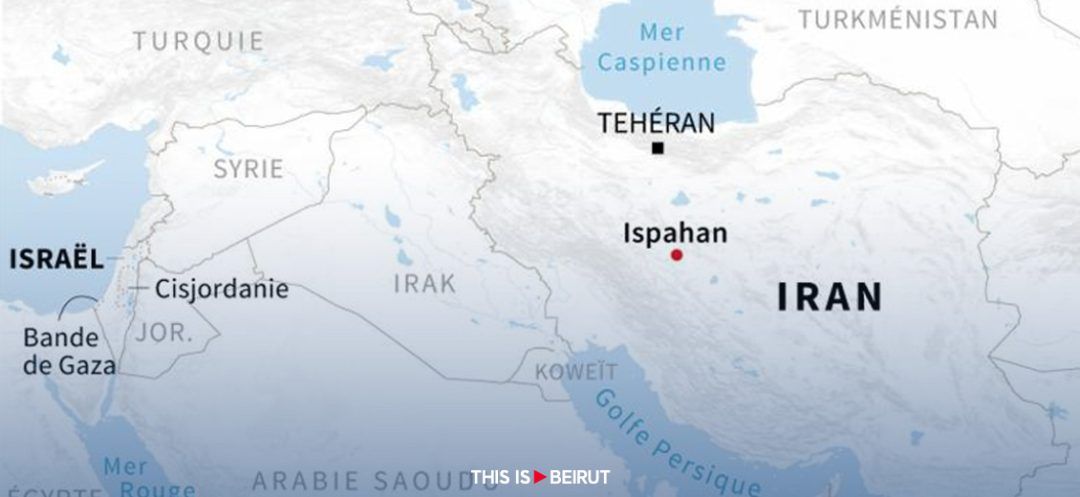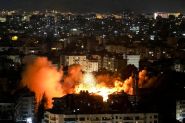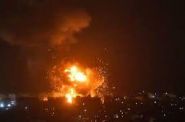- Home
- War in the Middle East
- Editorial — The Unspoken War

The prevailing impression from the unfolding “vicissitudes” in Isfahan at the break of dawn on Friday was that Israelis and Iranians were almost ashamed of engaging in direct, face-to-face warfare… In their quest for moral justification, they deploy startling theatrics or unusual military-media acrobatics. Their objective: to minimize damage, prevent loss of human life and mitigate the impact of their actions on their adversary, all to save face. Yet in the absence of a head-on confrontation, it is the Pasdaran's footholds in multiple Arab nations that could seriously bear the brunt of this unspoken war. Evidence of this lies in the recent attack on the significant Kalsu base belonging to the pro-Iranian Iraqi militia, the “Popular Mobilization” (Hashed al-Shaabi), in the province of Babylon on Friday night.
Upon the operation in Isfahan at daybreak on Friday, it took several hours to determine the nature, magnitude and contours of the attack. According to Iranian authorities, little of consequence transpired that day (!), save for the sudden appearance of three small drones engaged in a playful pursuit, leisurely twirling in the tranquil skies of Isfahan... In Tehran, every linguistic device was employed to trivialize the magnitude of the attack. Meanwhile, Israel maintained official silence; no claims were made, evidently to allow Tehran to tackle the situation discreetly, without media spectacle.
This doubly cautious approach, coupled with Iran's customary warnings to the Hebrew State, signifies the unique stage unfolding in the Middle East which seems characterized by a war of a new kind. For both Israel and the Islamic Republic—more specifically the Pasdaran—the current challenge is predominantly geopolitical rather than purely military. The journey to Jerusalem is indeed extremely lengthy, much too far for the Pasdaran, Hezbollah, the Houthis and their consorts to realistically undertake!
Once again, it is in the predominantly political realm that we must assess the mysterious attack on Isfahan. The Israeli army clearly intended to demonstrate its capability to seamlessly penetrate Iranian airspace to its adversary and execute a precisely targeted strike against highly strategic infrastructure within Iranian territory. The selection of Isfahan itself, situated at the heart of Iran and housing significant nuclear, military and industrial facilities, speaks volumes. What’s particularly striking is that this show of force was not conducted via drones, but by Israeli aviation using long-range missiles, allegedly causing significant damage to... an air defense system (!), according to The New York Times.
The significance of this attack on Isfahan resides not only in the undetected operation of Israeli military aircraft but also in what was not executed. The vulnerabilities, if not the absence of Iranian air defense systems in such a critical area as Isfahan have now been glaringly revealed. The bombardment was conducted from a distance, admittedly, but proceeded without any notable response. Simultaneously, it is noteworthy that Israel took care to spare the nuclear, or at least industrial, infrastructure in the area.
Is Israel's restraint the result of intense American pressure or a deliberate strategy to avoid excessively destabilizing the Iranian regime? In either case, the alternative option could be to rely on local Pasdaran proxies. The bombing of the military base linked to the Hashed al-Shaabi in Babylon on Friday night is undoubtedly one such illustration. The matter is to be continued, in this regard...
Read more




Comments